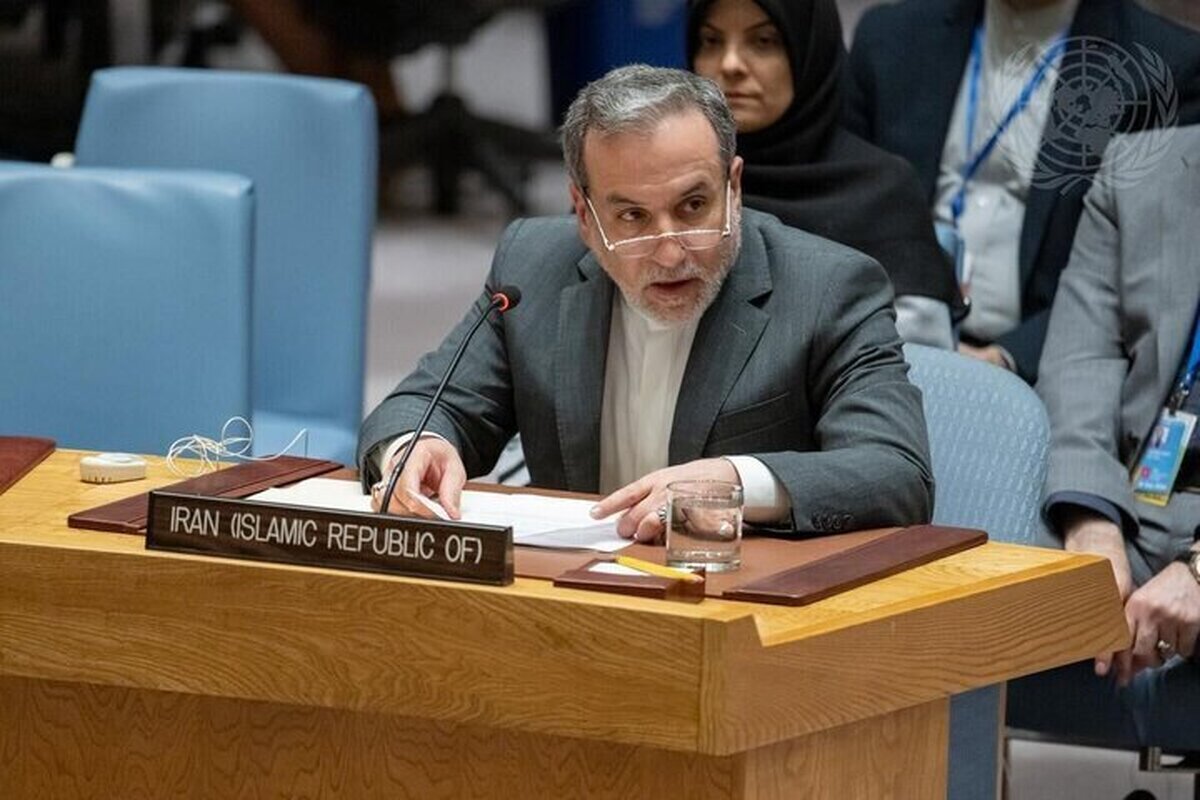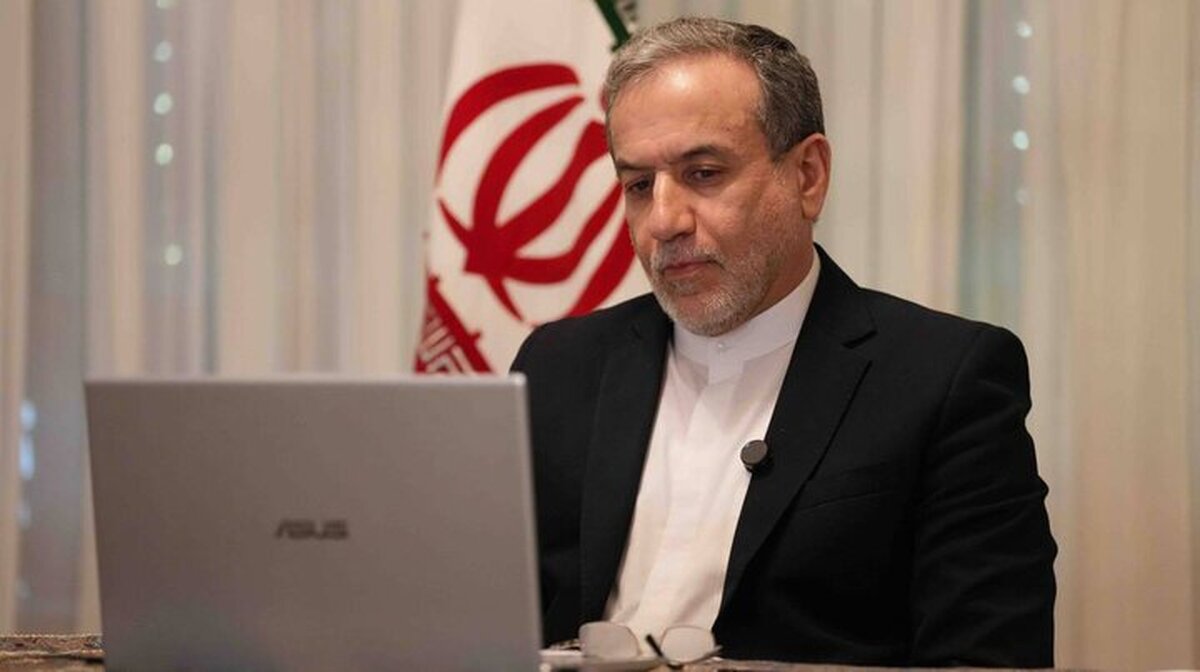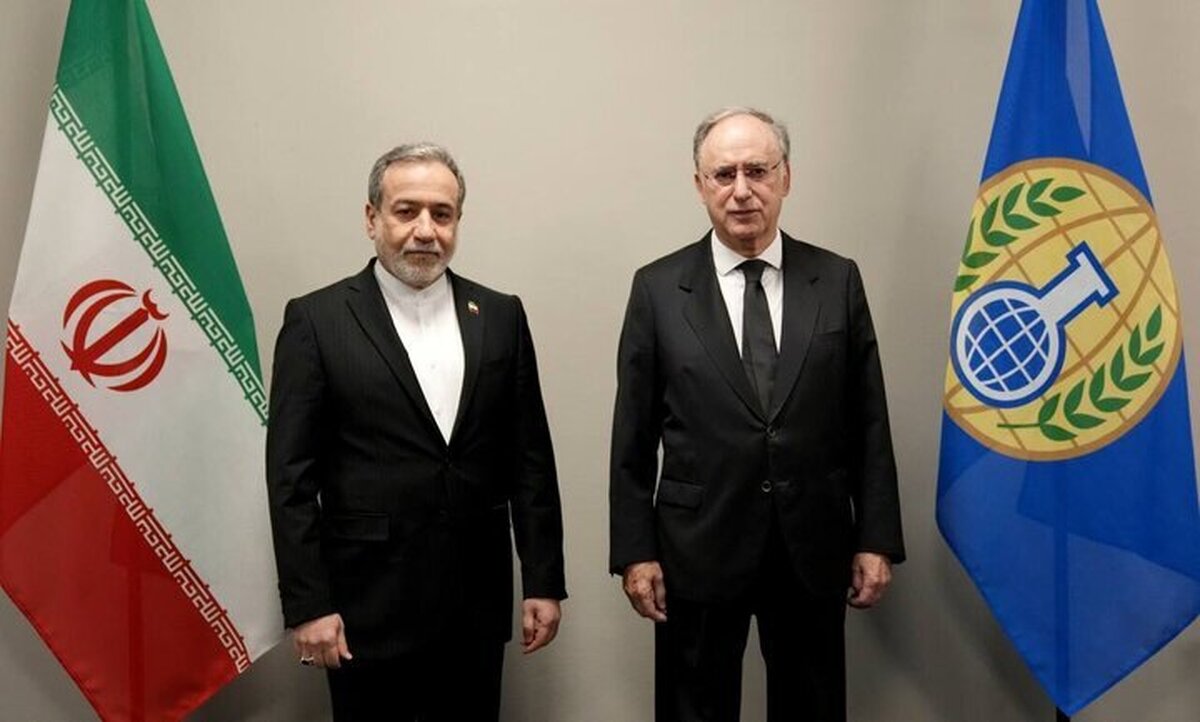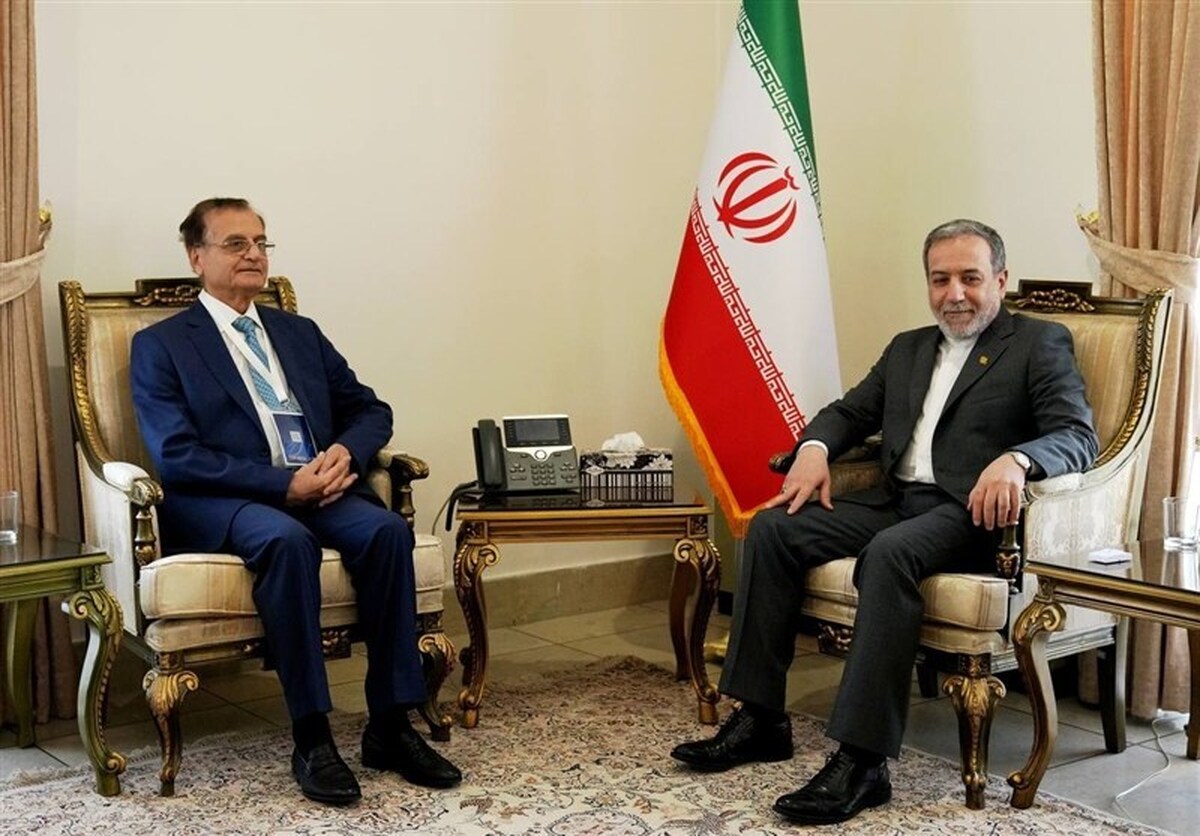
Araghchi comments on Iran approach toward militants in Syria

Iranian Foreign Minister Abbas Araghchi says that Iran is closely monitoring the developments in Syria and its approach will depend on the policy militant groups in the Arab country adopt toward the Islamic Republic.
EghtesadOnline: Iran’s Foreign Minister has attributed the fall of the government of President Bashar al-Assad to the inability of the Syrian military to confront armed groups that took over many areas, including the capital Damascus in a lightning offensive.
Everything was clear in my opinion, both the analyses and the news coming from Syria about the offensive, Abbas Araghchi said in a live interview on state television on Sunday night regarding the recent developments in the region, adding that it was the Syrian army's duty to counter anti-government groups.
We also knew that there always existed a behind-the-scenes plot by the United States and the Zionist regime to cause the Axis of Resistance to suffer one after another, he noted.
Araghchi said that Iran’s security and intelligence apparatuses were fully aware of the acts of the armed groups in Idlib and other areas and all relevant information had been transferred to the Syrian government and army. "If the Syrian army had resisted, even Aleppo would not have fallen".
The crisis in Syria was a bit natural following the developments in Gaza and Lebanon, the top Iranian diplomat said, adding, "What was surprising was the inability of the Syrian army to confront the movement of the armed groups, and the second was the speed of the movements.
Referring to his recent meeting with the toppled Syrian president, Araghchi revealed that even Assad was surprised and complaining about the state of his own army.
He also touched on Iran- Syria relations, saying the two countries have been cooperating with each other for over four decades and one of the areas of collaboration has been resistance.
Attacks in Syria violated Astana process
The Iranian foreign minister also talked about his country’s advisory mission to the Arab country, saying the Iranian military personnel had gone there at the request of the Syrian government.
We have always guided the Syrian government to dialogue with its opponents in order to resolve the differences between them, and we cooperated with them in this matter only by advising and guiding on the matter, Araghchi said.
The top diplomat continued that the recent attacks were really against the process of the Astana meetings because one of the goals was that after peace was established in Syria, the three guarantor countries of Iran, Russia, and Turkey would help the Syrian state and the opposition to have a political dialogue, discuss reforms and constitutional amendments if necessary.
Araghchi further said that Iran’s stance has always been to support dialogue between the Syrian government and its opponents despite the fact that some of the Syrian opposition groups were on the UN list of terrorist groups and some of them hailed from different backgrounds.
Regional concerns grow about collapse of Syria
Araghchi said that he had meetings with 8 different regional countries on Saturday, with all of them expressing concerns that Syria should not move toward disintegration or become a means for terrorists and that Daesh shouldn’t return again.
In the meetings, we emphasized the need to respect Syria's sovereignty and territorial integrity as well as demanded that the clashes stop immediately in order to kick-start dialogue between the Syrian government and the opposition.
He stated, however, that the conspiracy was underway and even forces had been trained and organized against the Syrian government.
Concerns are growing about sectarian war, civil war, or, God forbid, the complete disintegration and collapse of Syria and its transformation into a hub of terrorists, Araghchi underlined.
Syria developments won’t weaken Hezbollah
The Iranian foreign minister acknowledged that the Resistance Front has been going through a difficult period for more than a year; still, he said that the Resistance combatants have displayed exemplary resilience. There is still resistance in Gaza, and the Zionist regime has not yet been able to get the captives freed.
On Hezbollah, he said that despite the blows it suffered, the Lebanese Resistance Movement was able to quickly reorganize itself. Why did the Zionist regime agree to a ceasefire? There is no reason other than Hezbollah’s resistance which forced the regime to accept a truce.
Resistance is a thought, a school, and it has had many ups and downs, he noted, adding Hezbollah’s current munitions, equipment and facilities are enough for its resistance over the next one or two years.
Hezbollah lost its leader, Martyr Sayyed Hassan Nasrallah, but this was not the first time the movement had gone through such a difficult time, Araghchi noted, saying the Resistance will find its way anyway because it is an ideal and not a classic war, and for this reason, the Resistance cannot be eliminated.
Call to ensure safety of diplomatic, religious sites in Syria
Araghchi noted that Iran is closely monitoring the developments and its approach will depend on the policy militant groups in the Arab country adopt toward the Islamic Republic.
We are waiting and seeing what kind of government will be established in Syria, if we reach a point where we recognize that government, it is natural that we will provide the Syrian embassy in Tehran to them, and until then the current ambassador and the current staff will remain in their embassy, he said.
Regarding the Iranian embassy, we have talked with various parties in Syria about ensuring the security of the diplomatic mission in Damascus and the consulate in Aleppo, as well as about ensuring the security of the holy sites, Araghchi underlined. / Mehr




